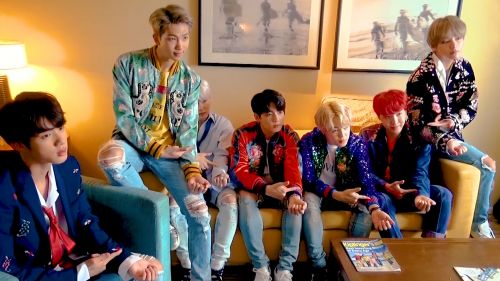BTS Prepares to Enlist, South Korean Public Split on Exemption

Should members of the South Korean boy band BTS receive an exemption from mandatory military service?
South Korean Boy Band BTS
Since their debut in 2013, South Korean boy band BTS has been one of the hottest musical acts on the planet. The group consistently ranks at the top of Billboard 200, reached billions of views on YouTube, and also spoke at the United Nations in 2018. But their success has put them at the center of a social debate in South Korea: should the members of the group receive an exemption from mandatory military service?
Korea’s mandatory military service was put into law by the Military Service Act in 1949. It requires every able-bodied man to undergo a period of military or civil service—now about 18 months—by the time they turn 28. While it is possible to delay the service, it is extremely difficult to avoid altogether. The oldest member of BTS, Kim Seok-Jin (Jin), turns 27 in December and is expected to enlist in the near future. However, some BTS fans and a few politicians have called for the group to receive exemptions for their record-breaking achievements.
While exemptions are difficult, they are not impossible. Such exemptions are only made under special circumstances as outlined in Chapter VIII of the Military Service Act. North Korean refugees, those with severe physical or mental illnesses, or those declared unfit are all groups eligible for exemptions. However, the law also grants exemptions to citizens who have achieved outstanding feats in sports or the arts. A notable example is the professional soccer player Son Heung-min—the captain of the South Korean National Team and a winger for Premier League’s Tottenham Hotspur. When South Korea won the gold medal at the 2018 Asian Games, Son and the rest of the team won an exemption from military service. This is possible because Article 68 of the Enforcement Decree of the Military Service Act allows medalists of any color in the Olympic Games and the gold medalists of the Asian Games to replace full-time service with one month of basic training.
The reasons given for these exemptions are that these individuals played a great role in “securing the national prestige,” as well as representing and promoting a positive image of South Korea as a nation on the international stage.
South Korea’s Culture Minister Park Yang-woo has already ruled that BTS would not receive an exemption from service, sparking a debate among the Korean public about the equity and objectivity of exemptions. A petition submitted to the Blue House—the executive office of the South Korean President—by those who support an exemption for BTS asserts that the group has done more for “national prestige” than any sports medalist. Since their surge in popularity overseas in 2014, the Korean Foundation for International Cultural Exchange stated that 7.6 percent of the total of international tourists to South Korea cited BTS as the reason for their visit. Furthermore, international and domestic activities of the group generated an estimated $1.5 billion to the Korean economy in forms of consumer goods, new jobs, tourism, and exports.
However, exemptions are controversial. Not only are they rare, but they can also play upon perceptions of class stratification in South Korea. When stories of exemptions are covered in the media it is often to report that the sons of the wealthy, prominent politicians, and businesspeople have received exemptions. This raises the suspicion that influence peddling is behind these exemptions. Meanwhile, those without means have no recourse but to enlist.
For its part, the Korean public is split on such an exemption. In a survey conducted by a consortium of firms, 46 percent say BTS should be granted an exemption while 48 percent oppose. Those who identified as conservative and male were more likely to oppose allowing exemptions for the members of BTS. Fifty-six percent of the conservative People Power Party opposed the granting of exemptions as did 53 percent of the progressive Democratic Party of Korea’s 53 percent. Half (52 percent) of the male population opposed exemption, while only 44 percent of females opposed.
But the members of BTS along with their record label recognize the importance of honoring the mandatory draft. The CEO of Big Hit Entertainment, Bang Si-Hyuk, released a statement that the company believes that military service is a national duty, and that each member will serve in the Korean Armed Forces when the time comes.

